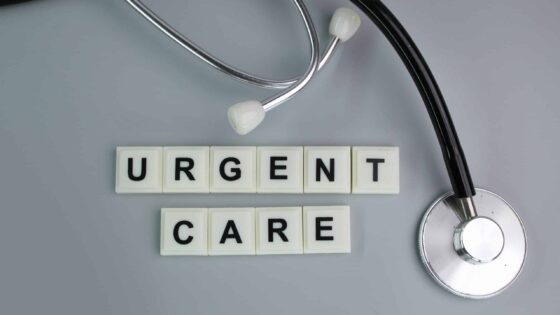
When an unexpected illness or injury arises, knowing how to prepare for your urgent care visit can help ensure a smooth and efficient experience. This blog provides tips on what to bring, questions to ask, and important information on insurance and identification, so you can make the most of your visit to urgent care.
1. What to Bring to Your Urgent Care Visit
Identification and Insurance Information
- Photo ID: Bring a valid photo ID, such as a driver’s license or passport.
- Insurance Card: Have your insurance card ready to facilitate the check-in process and verify your coverage.
For more details on why these documents are essential, visit Healthline’s Guide on Preparing for Medical Visits.
List of Medications
- Compile a list of all medications you are currently taking, including dosages and frequency. This should include prescription medications, over-the-counter drugs, and any supplements.
Medical History
- Bring a summary of your medical history, including any chronic conditions, past surgeries, allergies, and previous hospitalizations. This information is critical for the healthcare provider to make informed decisions about your care.
For additional tips on organizing your medical history, check out the Mayo Clinic’s Patient Preparation Guide.
Current Symptoms and Timeline
- Note down your current symptoms, including when they started, their severity, and any factors that worsen or alleviate them. This helps the healthcare provider diagnose your condition accurately.
Contact Information
- Have the contact information of your primary care physician and any specialists you see regularly. This allows the urgent care provider to coordinate follow-up care if necessary.
2. Questions to Ask During Your Visit
Diagnosis and Treatment Plan
- What is the diagnosis and what treatments are available?
- Are there any alternative treatment options?
- How does the proposed treatment work, and what are its potential side effects?
Follow-Up Care
- Do I need to schedule a follow-up appointment with my primary care physician?
- Are there any specific instructions I should follow at home?
- What signs or symptoms should prompt me to seek further medical attention?
Medications
- Will I need any prescriptions, and if so, what are they for?
- Are there any potential interactions with my current medications?
- How should I take the new medication, and what should I do if I miss a dose?
Preventative Measures
- Are there any lifestyle changes or preventative measures I should consider to avoid future issues?
- Should I undergo any additional tests or screenings?
For more advice on questions to ask during a medical visit, refer to WebMD’s Doctor Visit Checklist.
3. Ensuring a Smooth Visit
Call Ahead
- Some urgent care centers allow you to check in online or call ahead to reduce wait times. Verify this option by visiting the clinic’s website or calling their office.
Arrive Early
- Arrive a few minutes early to complete any necessary paperwork and get settled before your appointment.
Understand Your Insurance Coverage
- Familiarize yourself with your insurance coverage, including co-pays, deductibles, and any required authorizations. Call your insurance provider beforehand to clarify what services are covered.
For more tips on navigating health insurance, see the National Association of Insurance Commissioners (NAIC).
Bring a Support Person
- If possible, bring a family member or friend for support. They can help you remember important information and provide comfort during your visit.
Conclusion
Preparation is key to ensuring a smooth and efficient urgent care visit. By bringing necessary documents, preparing questions, and understanding your insurance coverage, you can make the most of your time with the healthcare provider and receive the best possible care.
If you’re in need of urgent care services, we’re here to help. To learn more about Family First Urgent Care, visit www.familyfirsturgentcareconroe.com or call (936) 235-2825.
#UrgentCare #HealthcareTips #PatientPreparation #FamilyFirstUrgentCare #MedicalVisitGuide
- Cultural Competency in Urgent Care: Providing Inclusive Patient Care - April 11, 2025
- Key Facts About Hormone Replacement Therapy and Women’s Wellness - March 24, 2025
- Urgent Care for the Elderly: Specialized Services for Senior Patients - March 24, 2025



